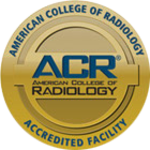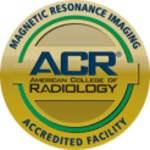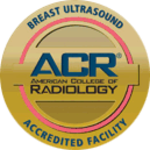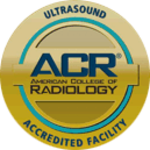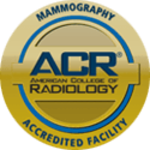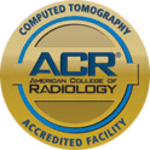Breast MRI
What is MRI of the Breast?
Magnetic resonance imaging (MRI) is a noninvasive test used to diagnose medical conditions. MRI uses a powerful magnetic field, radio waves and a computer to produce detailed pictures of internal body structures. MRI does not use radiation (x-rays). MRI of the breast near North Branford, CT offers valuable information about many breast conditions that cannot be obtained by other imaging modalities, such as mammography or ultrasound.
During breast MRI, a powerful magnetic field, radio frequency pulses and a computer are used to produce detailed pictures of the inside of the breasts. MRI is helpful in finding abnormalities that are not visible with mammography or ultrasound. In general, MRI is used only in women at high risk for breast cancer.
For an MRI of the breast, you will lie face down on a platform with openings to accommodate your breasts and allow them to be imaged without compression. A nurse or technologist will insert an intravenous (IV) catheter, also known as an IV line, into a vein in your hand or arm. You will be moved into the magnet of the MRI unit, which is a large tunnel, and an initial set of images will be taken while you remain very still. The contrast material is injected into the intravenous line (IV) and additional images are taken.
What are some common uses for Breast MRI in North Branford?
MRI of the breast is not a replacement for mammography or ultrasound imaging but rather a supplemental tool that has many important uses.
Screening in women at high risk for breast cancer living in North Branford Connecticut - For women at high risk for breast cancer, typically because of a strong family history, MRI may be an appropriate tool to screen for breast cancer. A strong family history is usually a mother or sister who has had breast cancer before age 50. It can also be aunts or cousins, including those on your father's side. Relatives who have had ovarian cancer also increase your risk. Your radiologist or primary care doctor can look at your family history and determine if screening MRI may be appropriate for you. Depending on your family history, genetic counseling may also be recommended.
Determining the extent of cancer after a new diagnosis of breast cancer - After being diagnosed with breast cancer, a breast MRI in North Branford, CT may be performed to determine how large the cancer is and whether it involves the underlying muscle, if there are other cancers in the same breast and whether there is an unsuspected cancer in the opposite breast, if there are any abnormally large lymph nodes in the armpit, which can be a sign the cancer has spread to that site.
Further evaluating hard-to-assess abnormalities seen on mammography - Sometimes an abnormality seen on a mammogram cannot be adequately evaluated by additional mammography and ultrasound alone. In these rare cases, MRI can be used to definitively determine if the abnormality needs biopsy or can safely be left alone.
Evaluating lumpectomy sites in the years following breast cancer treatment - Scarring and recurrent cancer can look identical on mammography and ultrasound. If a change in a lumpectomy scar is detected by either mammography or a physical exam, MRI can help determine whether the change is normal maturation of the scar or a recurrence of the cancer.
Following chemotherapy treatment in patients receiving neoadjuvant chemotherapy - In some cases, breast cancer will be treated with chemotherapy before it has been removed by surgery. This is called neoadjuvant chemotherapy. In these cases, MRI is often used to monitor how well the chemotherapy is working and to reevaluate the amount of tumor still present before the surgery is performed.
Evaluating integrity of breast implants - MRI is the best test for determining whether silicone implants have ruptured.
How is the procedure performed?
North Branford Connecticut MRI exams may be done on an outpatient basis. You will be positioned on the MRI exam table. For an MRI of the breast near North Branford, you will lie face down on a platform specially designed for the procedure. The platform has openings to accommodate your breasts and allow them to be imaged without compression. The electronics needed to capture the MRI image are actually built into the platform.
It is important to remain very still throughout the exam. This is best accomplished by making sure you are comfortable and can relax rather than trying to actively hold still tensing your muscles. Be sure to let the technologist know if something is uncomfortable, since discomfort increases the chance that you will feel the need to move during the exam.
The imaging session lasts between 30 minutes and one hour.
Did your doctor order this exam?
Other Information
- https://www.cancer.org/cancer/breast-cancer/screening-tests-and-early-detection/breast-mri-scans.html
- https://www.radiologyinfo.org/en/info.cfm?pg=breastmr




